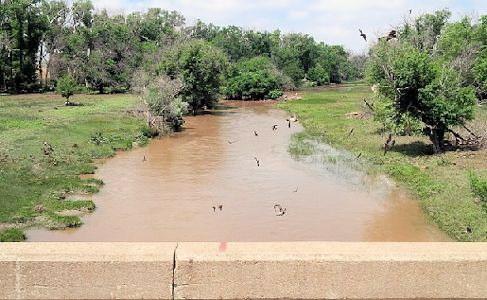🌵 Colonel Josiah Bywaters had lived peacefully in Virginia for years. Until one day, four years ago, his friend introduced him to a amiable young man called Apollo Gump. That's when his life was about to change completely.
🌵 This Apollo young man persuaded the Colonel to invest in Western land, but he rejected. Soon, however, the Colonel grew fond of the young man. They drank whiskey together, while Apollo told many stories about Kansas City, in particular a town called El Dorado: "the beauty of the location, the marvelous fertility of the surrounding country, the commercial and educational advantages of the town."
🌵 Soon enough the Colonel was persuaded, and after sold his business, left Virginia to move to El Dorado, along with some other men Apollo had also successfully persuaded.
🌵 El Dorado was practically owned by the Gumps. Every establishment was owned by one of Apollo's brothers; they were the banker, physician, architect, real estate agent, mayor, and so on. Apparently, El Dorado was founded by the Gumps, and now it was built by promise; promise that a railroad would be built, the waterworks would be put in, next spring. And Josiah was once more persuaded to invest his money on the land, while opening a grocery store.
🌵 When spring came, however, the Gump boys were summoned by their dying father. Excepting Apollo (he, too, later went away), they were all gone. And with them, all the funds - banking, real estate, etc. They realized then, that they were swindled.
🌵 All of them left El Dorado, but Josiah. He stubbornly refused to leave that deserted town, waiting to get his money back. Not even after other houses and buildings were torn down, and Josiah's store was the only building still intact. Would his patience bring fruitful result? Or would he be dying in the loneliness of the barren bluff?
🌵 I love this story! All the elements of what I love from Cather is here. Poetical prose, beautiful and poignant, vividly portrayal of the characters' struggles, all in a short story. And the ending is superb!
🌵 I also love how she described the landscape as a living creature:
"The river is a turbid, muddy little stream, that crawls along between naked bluffs, choked and split by sand bars, and with nothing whatever of that fabled haste to reach the sea. Though there can be little doubt that the Solomon is heartily disgusted with the country through which it flows, it makes no haste to quit it. Indeed, it is one of the most futile little streams under the sun, and never gets anywhere."
"Sometimes, in the dusk of night, when the winds were not usual and only the stars could hear, the dry little corn leaves whispered to each other that once, long ago, real yellow ears grew in the Solomon valley."
"Near the river was a solitary frame building, low and wide, with a high sham front, like most stores in kansas villages. Over the door was painted in faded letters, 'Josiah Bywaters, Dry Goods, Groceries and Notions.'"
🌵 Josiah himself is an inspiring character. His patience, his strong will to endure, not so much the poverty than, the loneliness. Many others in his place would have had fallen to pieces sooner than a year. But not Josiah. Maybe we can learn a bit from him - of his resilience, not his poor judgment - such as living life as if he'd live in his happy past. Josiah would always wear his best Sunday suit, and went for fishing - though there's scarcely any fish in that muddy river. These little things help him maintain his dignity, and ridiculous as it seems, I think it help him enduring his desolate situation. Do you agree?
Rating: 5 / 5



Cather's writing is amazing.
ReplyDeleteTotally agree!
Delete